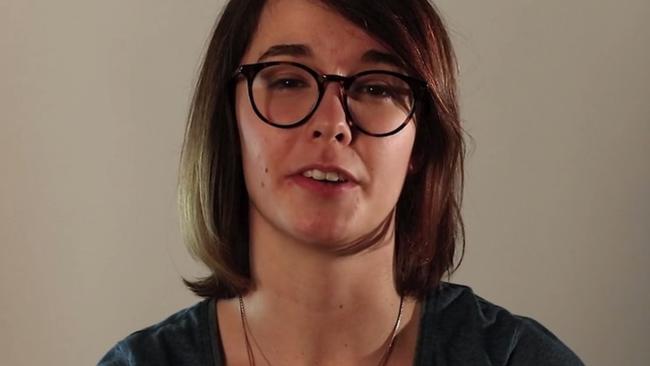Young backpackers describe farm work’s seedy underbelly
THEY came to Australia for adventure, but left with chilling memories. Now these backpackers are lifting the lid.
BEFORE settling into the deadlines and instant noodles of university life, Katherine Stoner wanted to spread her wings and explore.
With her best friend, the 18-year-old from the UK jetted to Sydney, ready for adventure.
It should have been the trip of a lifetime. But, now 21, she looks back on those days with mixed feelings because of a chilling problem she believes is all too common for backpackers.
“I wanted to go to Australia to travel and work on the other side of the world,” she said. “But when we landed in Sydney, we found it hard to find work.
“We were both 18 with little experience and qualifications. So, we were applying for jobs in bars and cafes but we weren’t getting anywhere.”
It was then the young Brits saw adverts online for farm and fruit-picking jobs in the bush.
“It seemed really easy. All we had to do was email them and they said, ‘Come on over,’” said Stoner.

The pair packed up and jumped on an eight-hour train ride into the Australian wilderness.
“We got work pretty quickly and, within a few days of being there, we were in the fields picking peaches,” she said. “There was about 10 of us in total.”
“It was long hours and long days in the sun, but the pay was OK so we didn’t mind.
“But it didn’t take long until we had picked all the peaches and the work ran out.
“He (the farmer) told the others that the work had dried up but for some reason he asked just me and my friend to stay on if we wanted.
“He would give us odd little jobs like trimming trees and that was when he started to get really weird.
“My friend and I were out picking peaches alone in the field on a really scorching, sweaty day and he came over. He said we should work naked.”
Stoner said the farmer then left but returned five minutes later asking why the pair hadn’t taken him up on his offer.
“We just didn’t know how to react,” she said. “We were just 18 in this field alone with this man with nobody else for miles around. I was really shook up by it.

“We just held on to the end of the day and quit the next day.”
Hoping the experience was just a one-off example of a bad employer, the pair stuck around for more farm work which came soon after.
They landed a two-week gig cleaning muddied garlic on a conveyor belt for 10 hours a day with eight other female backpackers.
“The farmers were shouting at us, telling us to work faster,” she said. “But, after a few days, then one of the older farmers picked up a garlic with these long green leaves and he started lightly tapping one of the girl’s bare legs.
“He then started circling us and gave us all a cheeky smack on our legs. He knew he could get away with it.”
The pair said they were too scared to report the behaviour to the police and thought it was just part of farm work for backpackers.
“We’ve heard of so many backpackers who have gone through similar experiences — they’ve heard farmers being racist or verbally abusive,” said Stoner.
“I have even heard about instances of backpackers being physically assaulted by farmers.”

Back in the UK and studying media, the student wants to use her filmmaking skills to expose a seedy underbelly to the farm work culture in Australia and campaign for stronger safeguards for backpackers.
The film, 88 Days, is expected to be out by winter 2018 and Stoner is currently crowd-funding to help pay for the filming.
It comes after bleak findings, released last week by UNSW Sydney and UTS, showing a third of backpackers and international students are paid half the legal minimum wage.
Laurie Berg, a senior law lecturer at UTS who co-authored the report, said 15 per cent of fruit and vegetable pickers were being paid less than $5 an hour.
“We also received indicators of much more serious exploitation which indicate criminal forced labour, for example,” she said. “And we have a substantial amount of people working in really exploitative conditions.
“For instance, paying for a deposit upfront for their job, having their passport confiscated by an employer and having to pay cash back to their employer after receiving their wage. This is most prevalent in food services and in horticulture.”
In 91 cases, respondents had their passports confiscated by employers and 173 respondents were required to pay upfront “deposits” of up to $1000 to secure a job in Australia.
The findings also show 112 respondents had been asked to pay money back to their employer in cash after receiving their wages.
Share your story — benjamin.graham@news.com.au | @bengrahamjourno on Twitter.




